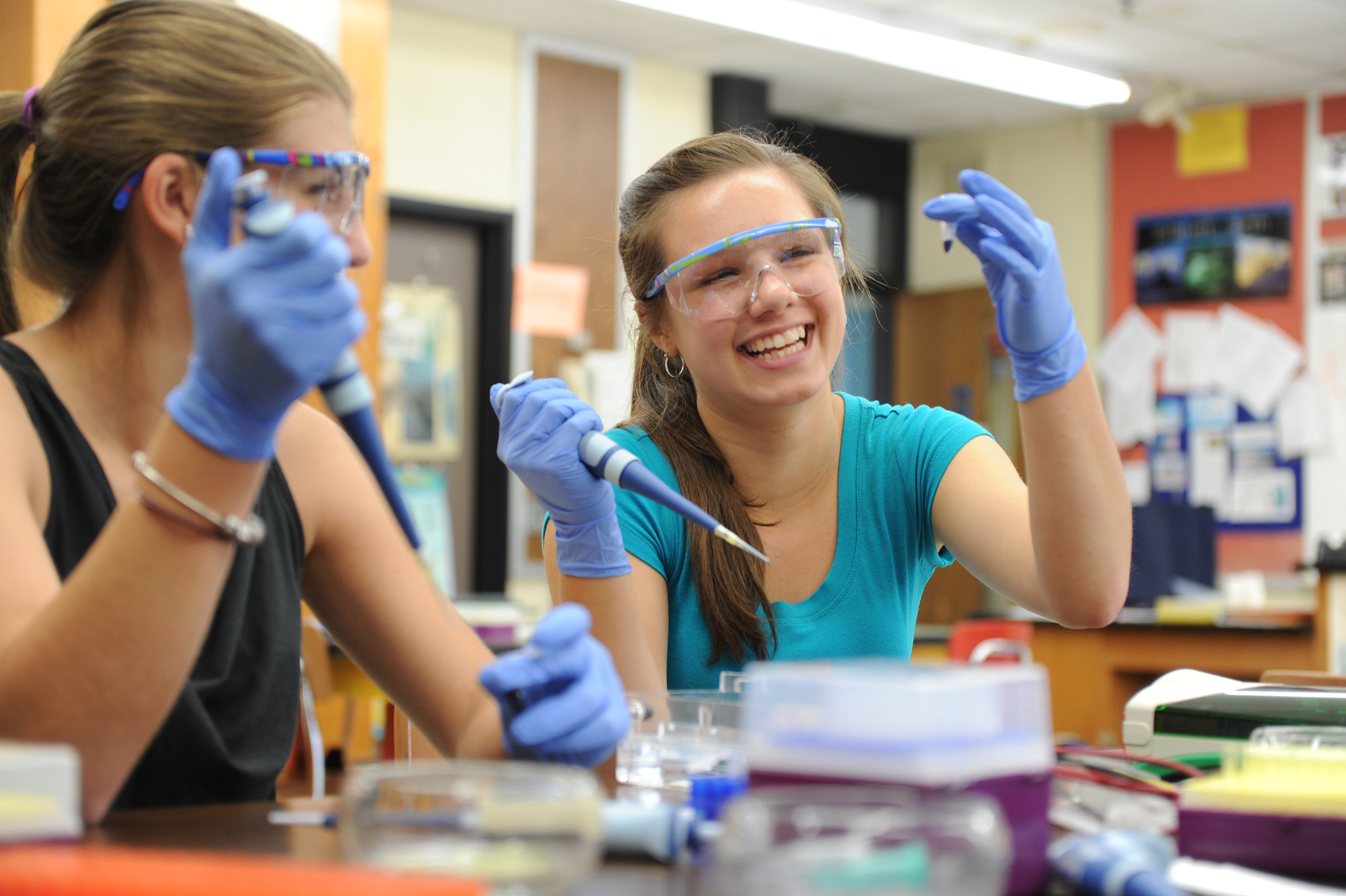At Stephen Lewis Secondary School (SLSS) in Mississauga, many students are interested in pursuing a medical career. The positive side of that is that the students have a natural interest in the biosciences and in helping people; the downside, that many do not realize there are paths for them to pursue those interests beyond becoming a physician.
However, since the school began using the Amgen Biotech Experience (ABE) labs last year, students are increasingly charting new paths. ABE is an international program funded by the Amgen Foundation and led by the University of Toronto Mississauga in Canada, that provide resources to empower high school science teachers to implement real-world biotechnology labs in their classrooms. The program is inspiring scientific curiosity and igniting a life-long love of science in students in schools across Mississauga and the Greater Toronto Area (GTA). At SLSS alone, 82 students have now experienced the program in the fall term, with 90 more students slated for the program next term.
“Students often have the expectation that they must become doctors or engineers,” says Greg LeBreton, who is head of the science department at Stephen Lewis. “With ABE, students are given a portal with which to view other career options and possibilities for their future that involve STEM fields.”
[youtube url=”https://www.youtube.com/watch?v=xZfjQN8aSg8″ width=”500″ height=”300″]
ABE@UTM is a set of six lab modules that highlight key scientific experiments used in the process of scientific discovery and design. The program complements the current Ontario curriculum for Grades 11 and 12 Biology, providing curriculum material, research-grade equipment and supplies, and professional development to secondary school teachers.
Teachers guide students from fundamental technical training in the preliminary labs, to complex multi-step experiments in the latter modules. Students become more comfortable and confident in performing labs independently throughout the program implementation process. In post-lab surveys, more than 90% of students have indicated that the ABE program increased both their confidence in fundamental techniques, as well as their overall interest in science.

Amgen Biotech Experience (ABE)
The true impact of this program is creating the critical connection between theory and real-life, with students performing experiments found in biology labs across the globe. Students begin with the goal of success, but are encouraged to explore the challenges and errors along the way as essential components of research and discovery, providing students with a true experience of what scientific discovery and development involves, and the challenges along the way to scientific breakthrough.
Since the program’s launch in Canada in 2017:
- Three hundred and thirty students have participated in the ABE across Ontario
- The program is on track to reach an additional 980 students in the 2018-2019 year in 28 schools across seven Ontario school boards, for a total of 1,310 students
- Globally, nearly 90,000 students and 1,500 teachers take part in the Amgen Biotech Experience each year
- Nearly 700,000 students have experienced the fundamentals of biotechnology through the ABE
- The ABE hopes to reach 900,000 students around the world by 2020
“It is critical that teachers work to educate students on cutting-edge technologies such as biotech so that they are able to critically interpret news articles and make good, sound health care choices for themselves and their families as they move through their lives,” LeBreton says. “By teaching the fundamentals of science and biotechnology, we hopefully enable students to navigate their lives with a solid and useable understanding of science in the real world.”
by Kristina Han, ABE@UTM Site Coordinator, University of Toronto Mississauga